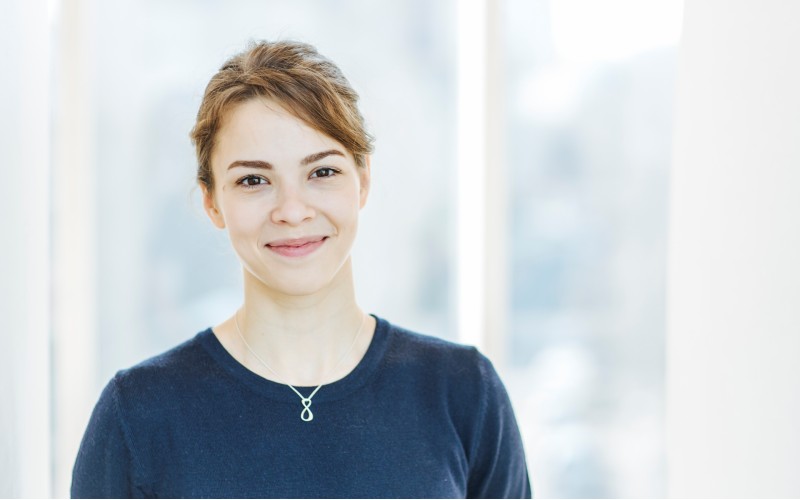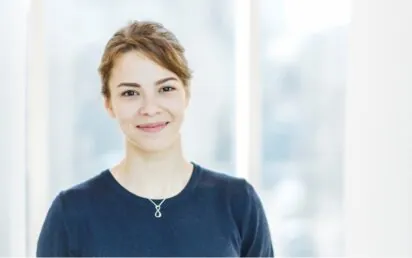Angel investment can be crucial to getting a startup off the ground – and is also seen as a validator of the founder and their technology.
Enter Anna Veronika Dorogush, founder and CEO of Recraft. A generative AI tool for graphic designers, it enables users to generate and edit vector art, icons, 3D images and illustrations within a brand’s style controls.
Recraft already has over 300,000 users in the eight months since its launch, and has just raised around £9.5 million in Series A funding, with backers including former GitHub CEO Nat Friedman. Dharmesh Shah, founder and CTO of HubSpot, and Elad Gil, a former key executive at Google and Twitter, are also in Recraft’s cap table.
How did she go about approaching such high-profile figures for investment?
“Angel investors are very important for a company: they come from different backgrounds, and can help with some specific things that are missing in your company DNA,” Dorogush tells TechBlast.
“Within Recraft we don’t have expertise in monetisation, but we have an angel investor in Zhenya Loginov, ex-chief revenue officer of Miro, with great experience in this area who I go to for advice.
“Some of our angels know me personally. We worked together before, so they know me well and believe in me. Having such people is a good validation of the company and the founder.”
Referrals
She adds: “Other angels in the cap table have been referred [to me] by my existing investors. I learned about them and thought that it would be beneficial to the company to have them on board. Nat Friedman is a great example, and his advice has already proved helpful.
“Another great example is Elad Gil. I am extremely lucky to have a chance to work with them and to talk to them when needed. They give me both tactical advice – how to approach hiring and firing, help me with early partnerships, and help me broaden my professional network.
“They also help me with strategy – how to think bigger, how to think about the competition, etc.
“Other angel investors are the people who just love the product, and have reached out to me on LinkedIn saying: ‘I love the tool, let me invest.’ This is what happened with Dharmesh Shah.”
Tech whiz
Dorogush’s background is in mathematics and engineering, with an impressive CV which includes Microsoft, Google and Yandex.
“I’ve built several successful products including a gradient boosting library, CatBoost, which I have open-sourced, and it is now used by the research and machine learning community everywhere in the world,” she explains. “It is downloaded from the Pypi repository hundreds of thousands of times each week.”
CatBoost is used in search engines and recommender systems, as well as for credit scoring and to predict everything from housing prices to the weather.
“A huge number of tasks are done by gradient boosting, even though it’s not as well known as deep learning. It performs better than other algorithms, including neural networks,” adds Dorogush.
“Our CatBoost paper has been cited in dozens of Nature papers, where gradient boosting is used to predict results in medicine, biology, chemistry, manufacturing and many other very different areas.”
Her expertise is in building products from scratch: “Designing them, figuring out what’s good for the users, and being a driver in creating those products, gave me the confidence to know that I’m good at building things, and I can build it just as well outside of Big Tech.”
Early hiccups
Despite the success of her Series A, things were not so smooth in Dorogush’s earlier seed round.
“There are some best practices for fundraising. I didn’t know many of them when raising our seed – and it’s helpful to know them!” she acknowledges.
“Don’t do fundraising in August or January; don’t spread the meetings over several months; be hyper-focused; research who you’re talking to and what they are looking for; and select the people you want to work with in the long term.
“The right way to do a round is to structure it so that you have all the first meetings during one or two weeks, and then the next meetings during the following couple of weeks. This is what I did [this time around].
“Raising our seed was harder – I didn’t know many people. So at first, I was only talking to investors who had invested in people I know. Since then I’ve met new people, and had a lot of intros from my current investors. So I could set up meetings with everyone I wanted to talk to.
“And I made sure to go out and talk to a bunch of VCs.”
Dorogush is based in London while the company’s remote workforce now totals 13. Friedman cited its deep level of talent and experience in machine learning as crucial to the decision to invest.
“It’s important to start with a great team: new great people will then be attracted to it,” is Dorogush’s take. “I didn’t compromise there.
“It’s a long term investment: it helps the company in the start, but it also helps the company five years from now – because if you build it right, then after five years everyone will know that this place has exceptional talent, and they will want to work there.”
Entrepreneurship
The entrepreneur has been thinking about starting a business for five years. So why did she take the plunge in 2023?
“I could have started a company a while ago – I have a good product intuition, I can manage teams well, and I’m able to build things that people love – but I thought I needed to learn more before starting something by myself.
“Now, I think that was wrong – the best way to learn is to do the thing you want to do… at least when it comes to building a company.”
Investors: this is why you should bring SMEs into your portfolio


